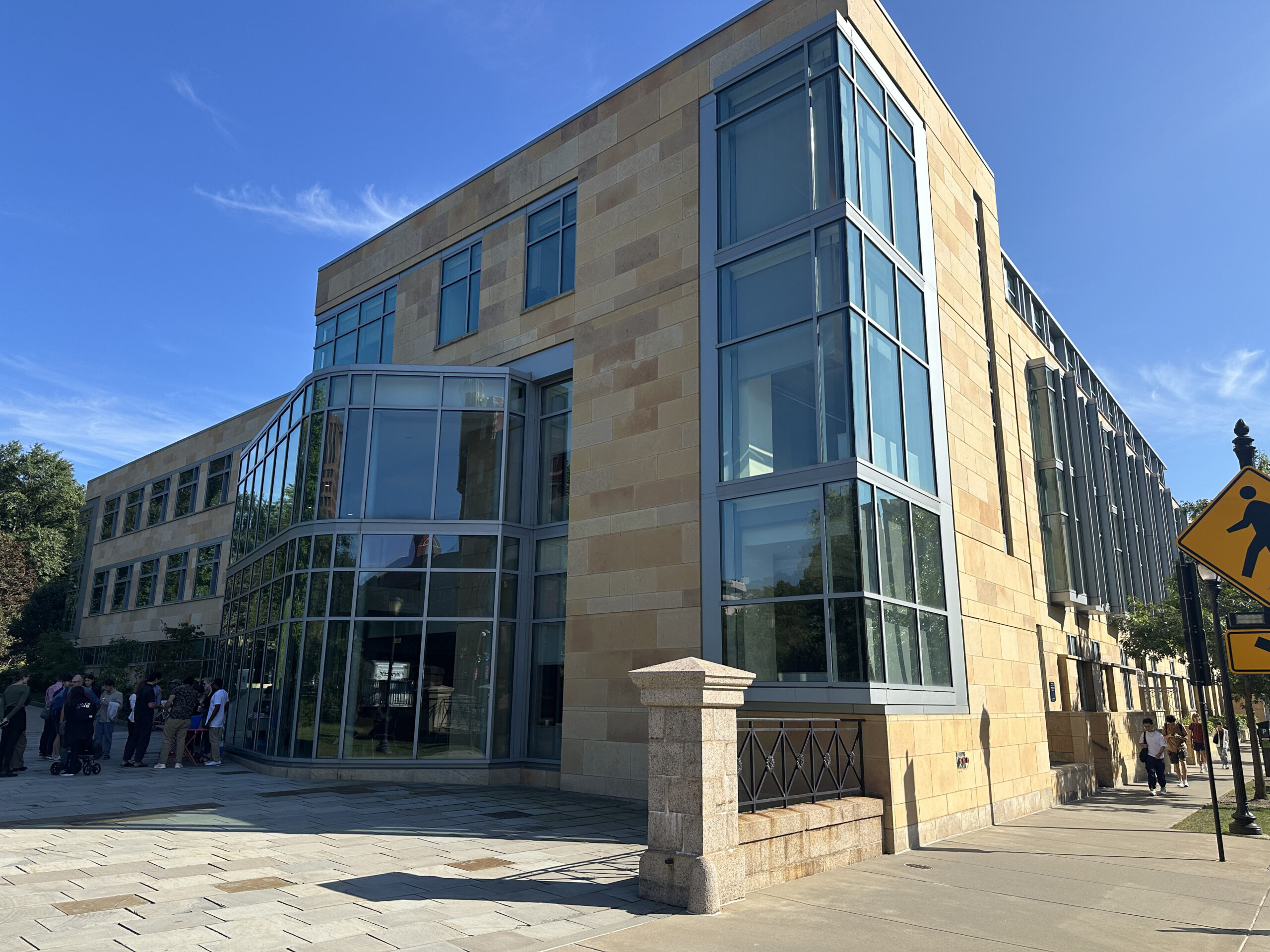Yale’s new civics center aims for open dialogue in small groups
The Center for Civic Thought, founded by professor Bryan Garsten, will bring on its first cohort of student fellows this year.

Tarek al-Husseini, Contributing Photographer
The new school year has brought a new Center for Civic Thought, a Yale initiative designed to encourage open dialogue among students and local community members.
The center is the brainchild of political science and humanities professor Bryan Garsten, who has led two civic thought programs at Yale over the past decade. Garsten told the News that he had wanted to expand those projects for the last few years and that the center came to fruition after Yale College Dean Pericles Lewis approached him last spring.
“We’re at a pivotal moment in the history of universities in this country,” Garsten, the center’s faculty director, said. “We need to be discovering new ways of thinking, and the best way to do that is to have a messy ferment of experimental, open, searching conversations among a pluralistic group of people.”
The center’s creation coincided with intense pressure from the Trump administration on universities, often based on criticism that they are skewed to the left.
Yale administrators, including Lewis and University President Maurie McInnis, have stressed the values of open dialogue and free expression on campus. In their welcome speeches to the class of 2029, McInnis and Lewis encouraged first years to engage with uncomfortable ideas and resist pressure for ideological purity.
Garsten rejected the notion that the center was created because of the Trump administration’s pressure on universities. He said he had been working on initiatives to promote civic conversations much earlier.
“I think it would be a huge mistake to think that the reason to have these conversations is something so small as the current presidential administration,” he said.
Instead, Garsten said the ethos of the center is uniquely important today due to a general “trust gap” between universities and the rest of society.
“I think there are a whole set of factors, including the fact that there’s a perception that — well, more than a perception — that faculty at many colleges tend to be on the left and our society is more evenly split than that,” Garsten said.
He added that while some institutions may be “scrambling” to create new civic-minded initiatives, he was proud that he had already been pursuing such projects.
Yuval Levin, the director of social, cultural and constitutional studies at the American Enterprise Institute, who serves on the center’s external board of advisers, wrote to the News that the center will allow students to learn from both each other and people outside of the University, enabling them to see “why they shouldn’t assume they have a monopoly on the moral high ground or the truth.”
According to Garsten, while the center is partly funded by donations from outside foundations, the majority of its funding comes from the offices of Lewis and Steven Wilkinson, the dean of the Faculty of Arts and Sciences.
Every Monday, the center is hosting a “coffeehouse” in the lobby of Rosenkranz Hall, gathering students and local community members to discuss a thought-provoking question. This week, the prompt was: “What’s a belief you hold that you think most people would disagree with?”
The center’s programs also include reading groups, small-group guest seminars and larger moderated conversations with panels, Stephanie Almeida Nevin, the center’s executive director, said in opening remarks at an introductory event for the center.
According to Almeida Nevin, the center is meant to be a home for students who want an intellectual community to discuss “big and difficult questions” outside the pressures of the classroom. Conversations around these questions feel more free, open and exploratory without the pressure of grades and evaluation, Garsten added.
Throughout the course of these discussions, student fellows will write and publish online a “dialogue project” that captures the complexities and disagreements surrounding particular issues.
Hundreds of people have joined the center’s mailing list and dozens of students have shown interest in becoming student fellows, Almeida Nevin wrote to the News.
Hamilton Henderson ’29, who attended the center’s first “coffeehouse,” said the self-selecting nature of the center allows attendees to have more meaningful conversations in good faith.
“You don’t have to be here. It’s not for credit. It’s not for a grade,” he said. “People who come here genuinely want to have those discussions.”
Rosenkranz Hall is located at 115 Prospect St.
Dani Klein contributed reporting.







